How Much Would One of These Golf Shafts Cost?
This week a fascinating golf club shaft patent application published disclosing a smart shaft aimed at reducing shaft vibrations. The application published as US Pub. No. 20090233729 titled “Vibration Reducing Golf Club” and describes the invention as:
A vibration reducing golf club includes a club main structure and a plurality of piezoelectric materials. The club main structure includes a club shaft and a ball head and can sustain the mechanical energy resulting from the swing of the club shaft and the collision between the ball head and a golf ball and consequently produces vibration and bending deformation. The piezoelectric materials are connected with conductive wires and adhered to the club shaft. When the club shaft undergoes mechanical deformation, the piezoelectric materials can transform the energy of mechanical deformation into electrical energy, thereby producing a voltage output and then feeding the voltage back to another piezoelectric material, so as to produce a deformation against the vibration direction of the club shaft. Thus, the vibration energy of the club shaft can be consumed. Therefore, the vibration reducing performance can be obtained by reducing the vibration of the club shaft.
Check out these drawings:
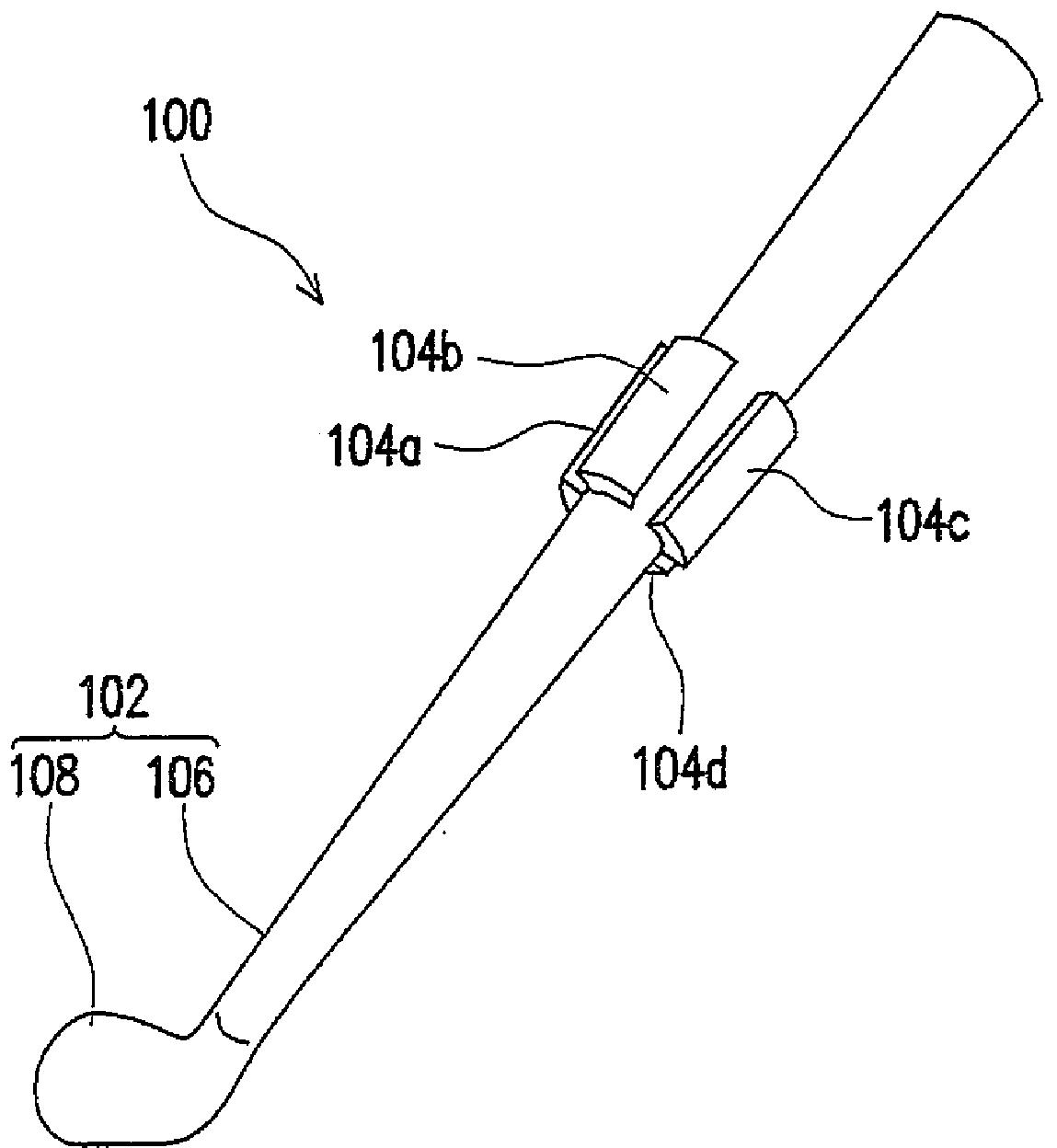
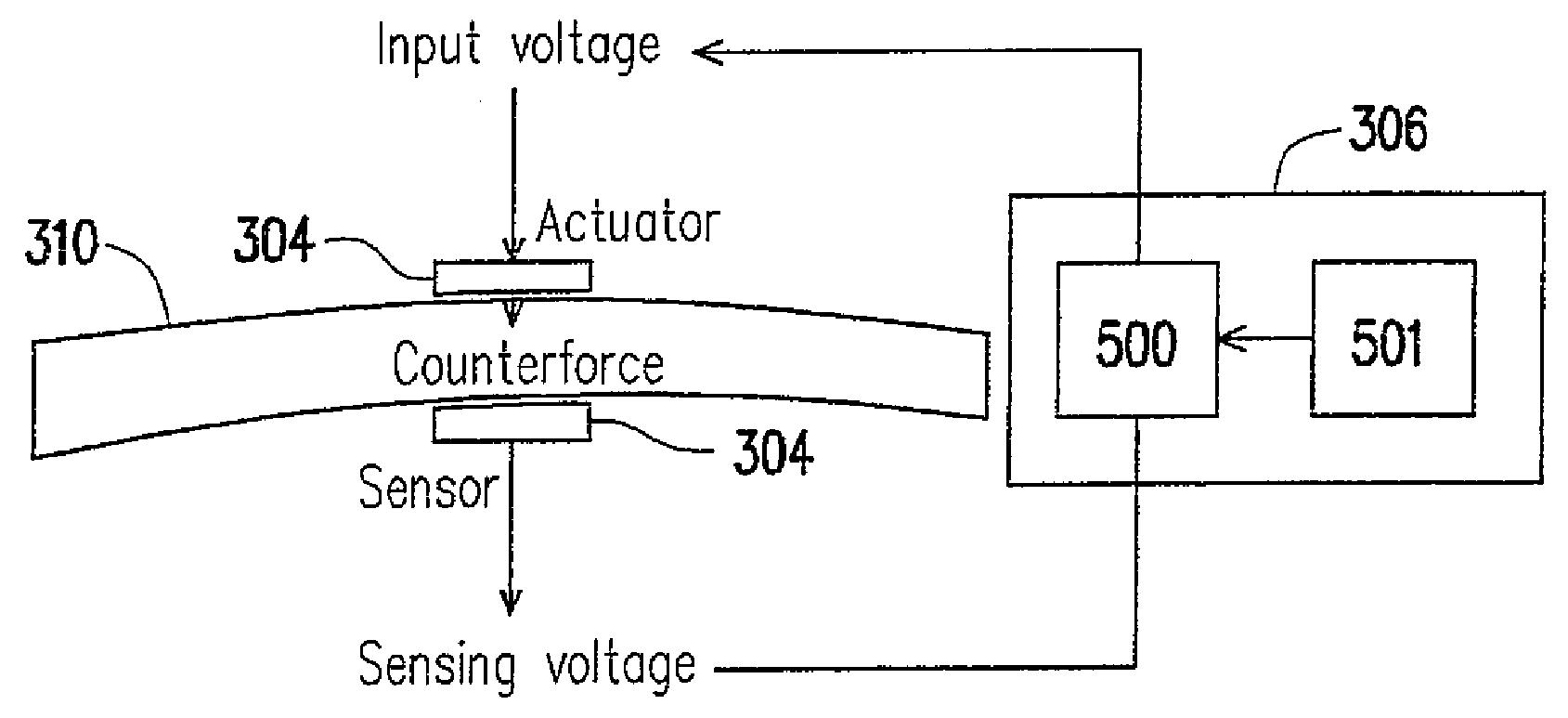
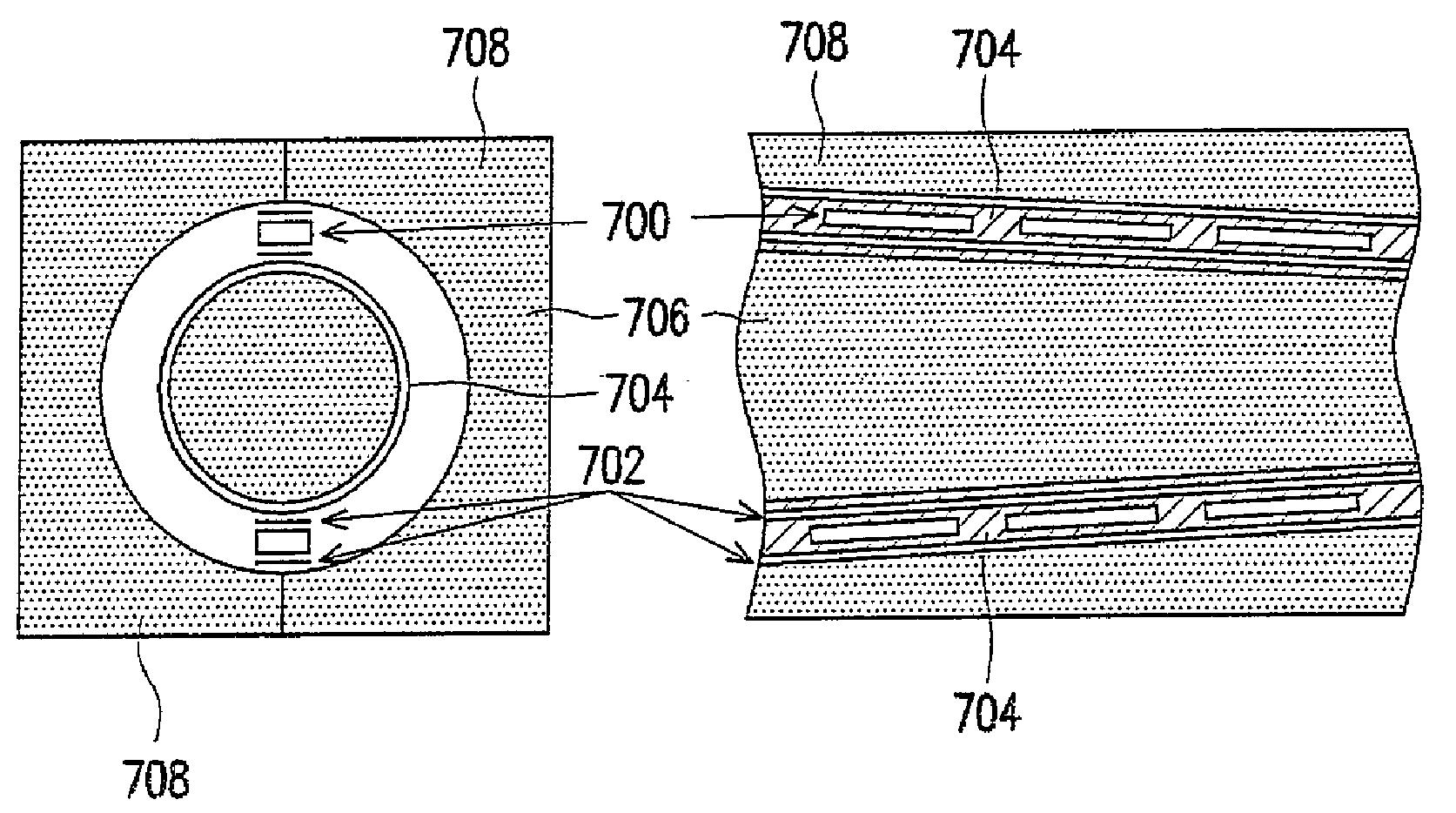
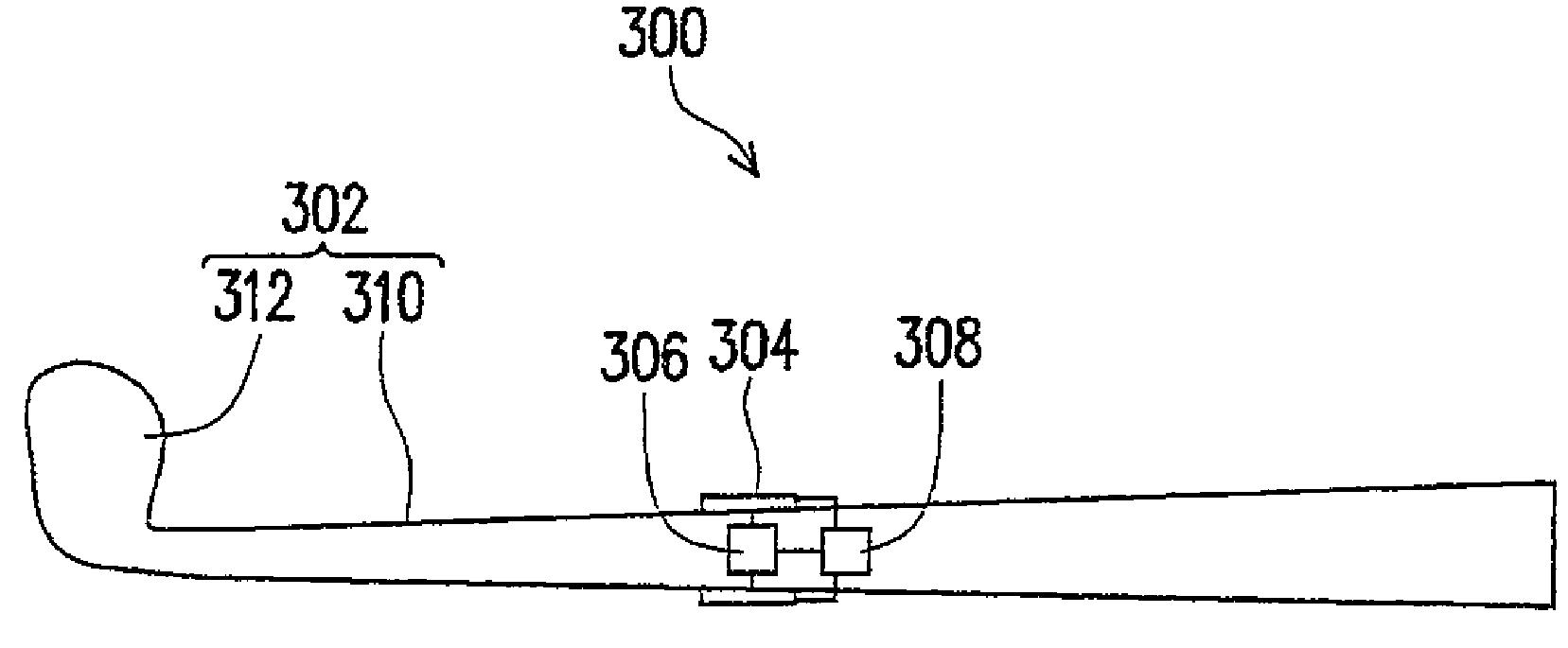
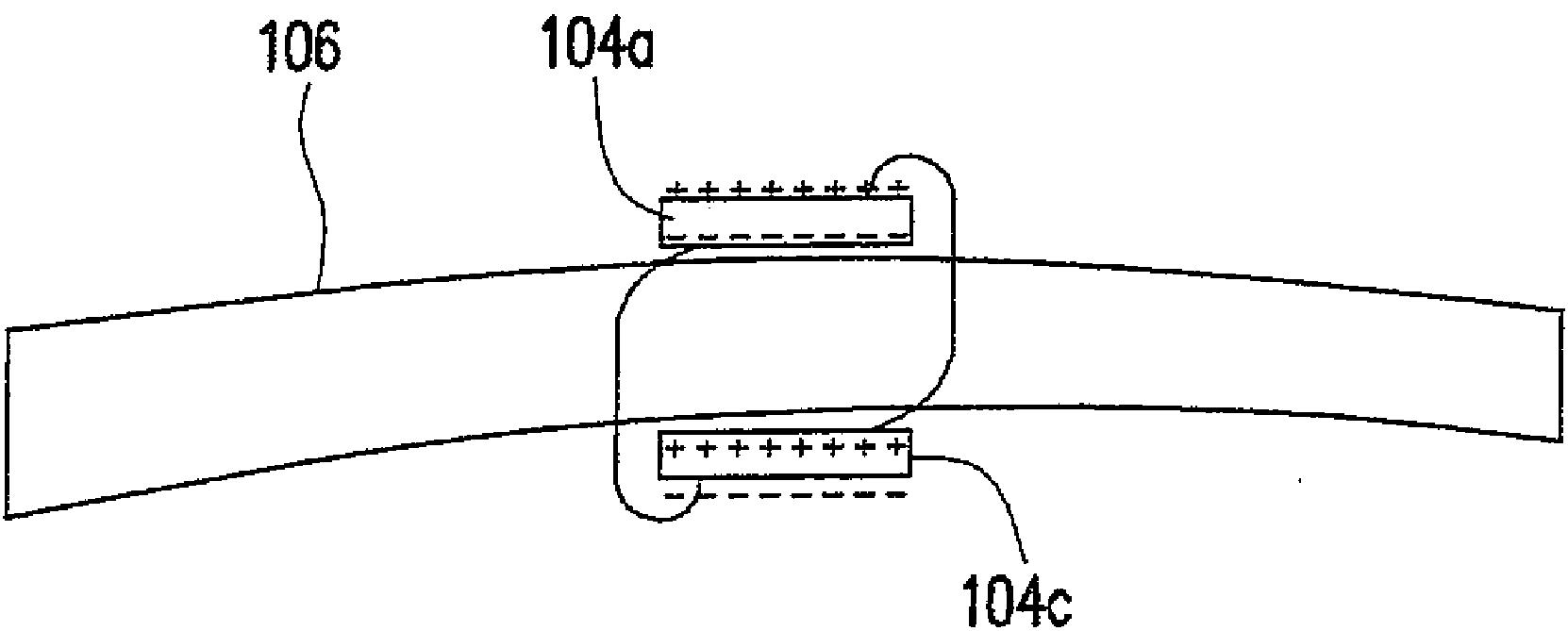
So, who owns the patent application? It is owned by the Industrial Technology Research Institute and Advanced International Multitech Co, Ltd., both of Taiwan.
The application goes on to explain:
[0008] Accordingly, the present invention is directed to provide a vibration reducing golf club, so as to achieve the effect of controlling the vibration of the golf club.
[0009] The present invention provides a vibration reducing golf club, which includes a club main structure and a plurality of piezoelectric materials. The club main structure includes a club shaft and a ball head. The club main structure can sustain the mechanical energy resulting from the swing of the club shaft and collision between the ball head and a golf ball and produces bending deformation and vibration. The piezoelectric materials are adhered to the club shaft. When the club shaft undergoes mechanical deformation, the piezoelectric materials transform the energy of mechanical deformation into an electrical energy, thereby producing a voltage output. Thus, the vibration energy of the club shaft can be consumed. Therefore, the vibration reducing performance can be obtained by reducing the vibration of the club shaft.
[0010] The vibration reducing golf club in the present invention further includes a control module and an energy storage module. The control module includes a conductive circuit configuration and a control circuit configuration. The conductive circuit configuration cross-connects the piezoelectric materials. The control circuit configuration is used to control the voltage output and transmission after one of the piezoelectric materials transforms the mechanical energy into an electrical energy, and to apply the produced electrical energy to another piezoelectric material, so as to transform the electrical energy into the mechanical energy. The energy storage module is used to provide the electrical energy required by the control module.
[0011] In the present invention, the piezoelectric materials are adhered to the club, and produce the electromechanical coupling effect to achieve the effect of controlling the vibration of the golf club. Further, the energy storage device may be added to store the piezoelectric energy transformed by the piezoelectric materials. In addition, the present invention utilizes a converse piezoelectric effect of the piezoelectric materials to transform the electrical energy into the mechanical energy, so as to release a power in forward direction of the collision, thereby enhancing the force for hitting a golf ball. After the collision, a force in opposite direction of the vibration of the club shaft is released by the converse piezoelectric effect of the piezoelectric materials, so as to resist and consume the vibration of the club shaft, thereby achieving better vibration reducing effect.
Interesting concept but, as I have said before, aside from the occasional shank, I just do not notice these undesirable vibrations that so many inventions seek to minimize. It seems like this shaft may be difficult to manufacture so that the shaft is similar in size and weight to conventional shafts, but it sure would be cool to see one in action.
David Dawsey – Monitoring Golf Shaft Patents
PS – check out other golf shaft patent posts here
